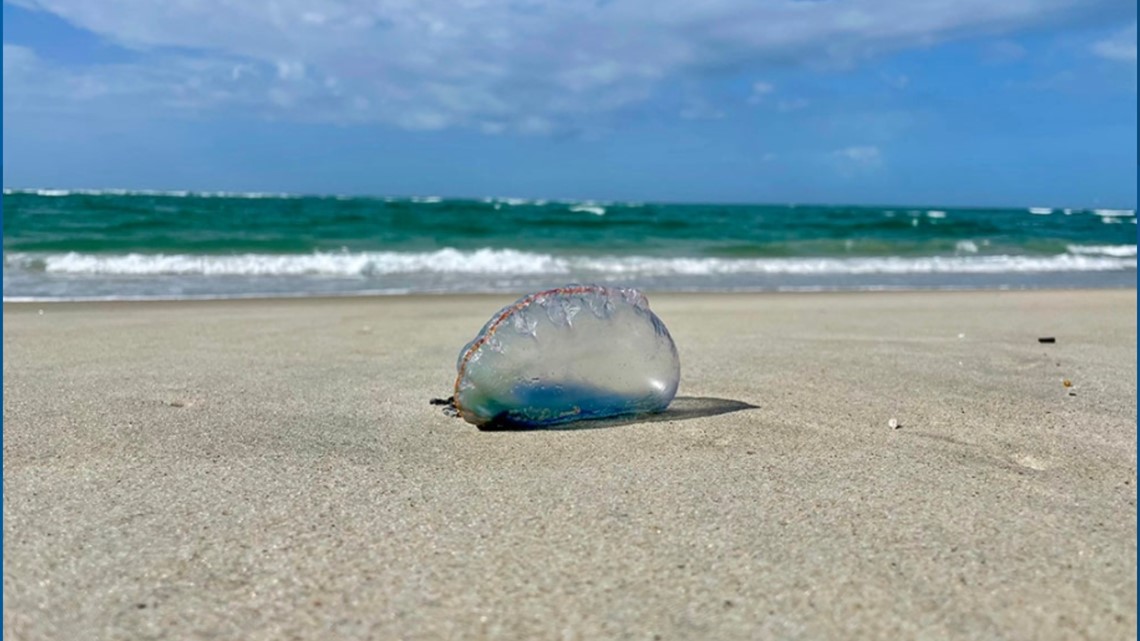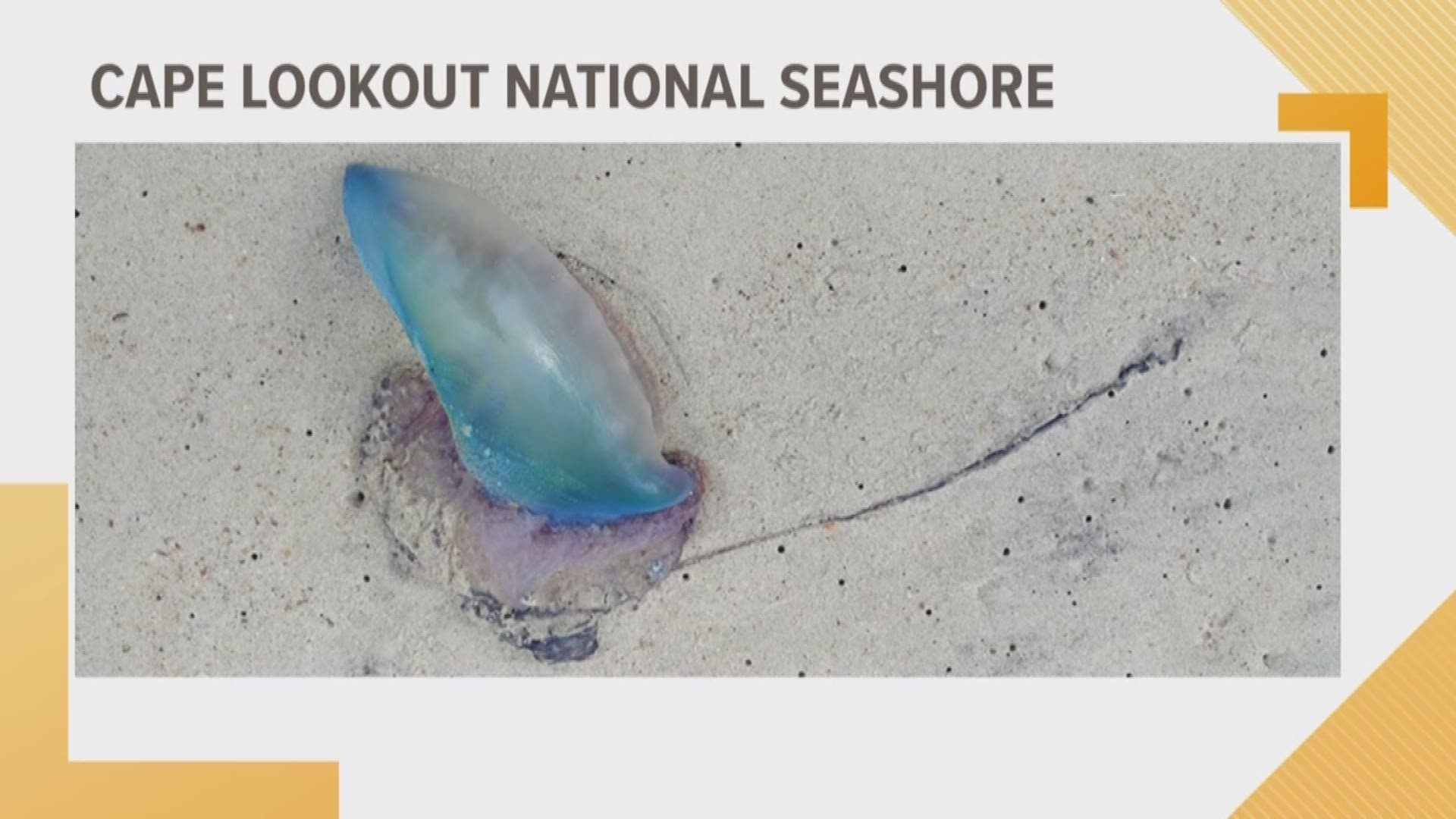CAPE LOOKOUT, N.C. — Editor's note: The above video is from a previous occasion that Portuguese man o' wars had washed up on OBX beaches.
National Park Service officials on the Outer Banks say Portuguese man o' war are washing up on North Carolina beaches and they're encouraging the public to avoid the venomous creatures.
South winds that have blown the past week have brought the man o' war -- which are often mistaken for jellyfish -- to the Outer Banks, Cape Lookout National Seashore officials said on Facebook. Despite being a common occurrence in the Carolinas, the Portuguese man o' war typically don't show up until later in the season.
According to National Geographic, the Portuguese man o' war floats on the ocean surface, and it uses its tentacles are to kill fish and other small prey.


The animals look like clear balloons and while it may be tempting to take a closer look, don't. It only takes a moment for it to deliver a painful sting to anyone who touches it.
"Even when they are on the beach, these stinging tentacles still work," officials said. "Stepping on one in your bare feet trying to pop the float, or just stepping on one by accident will give you a very powerful sting."
Those tentacles can be extremely long. One that was reported a few years ago at Myrtle Beach had tentacles that were 16 feet long. So when you see the balloon body, watch out for the tentacles, too.
Bottom line? Leave them alone!

